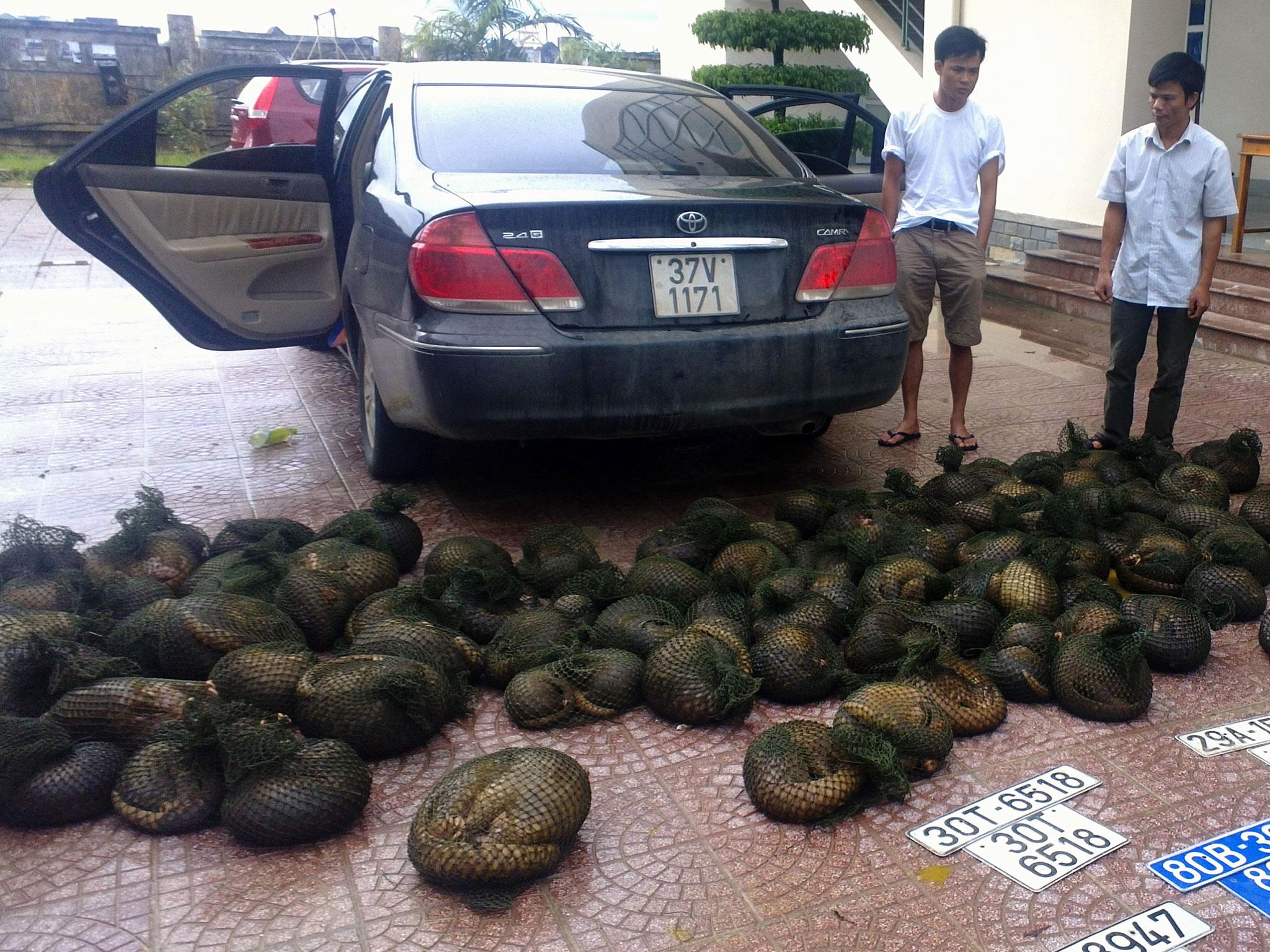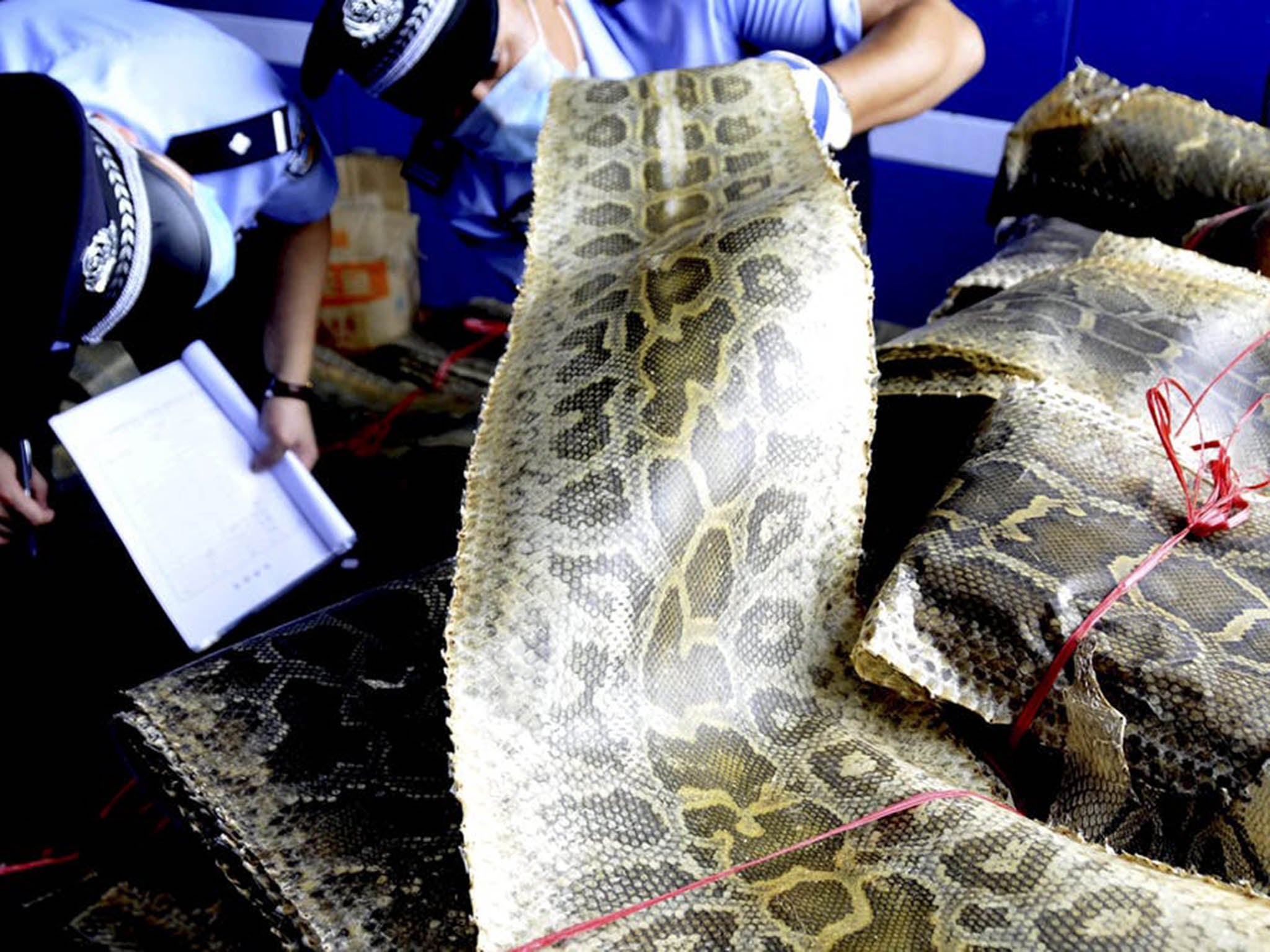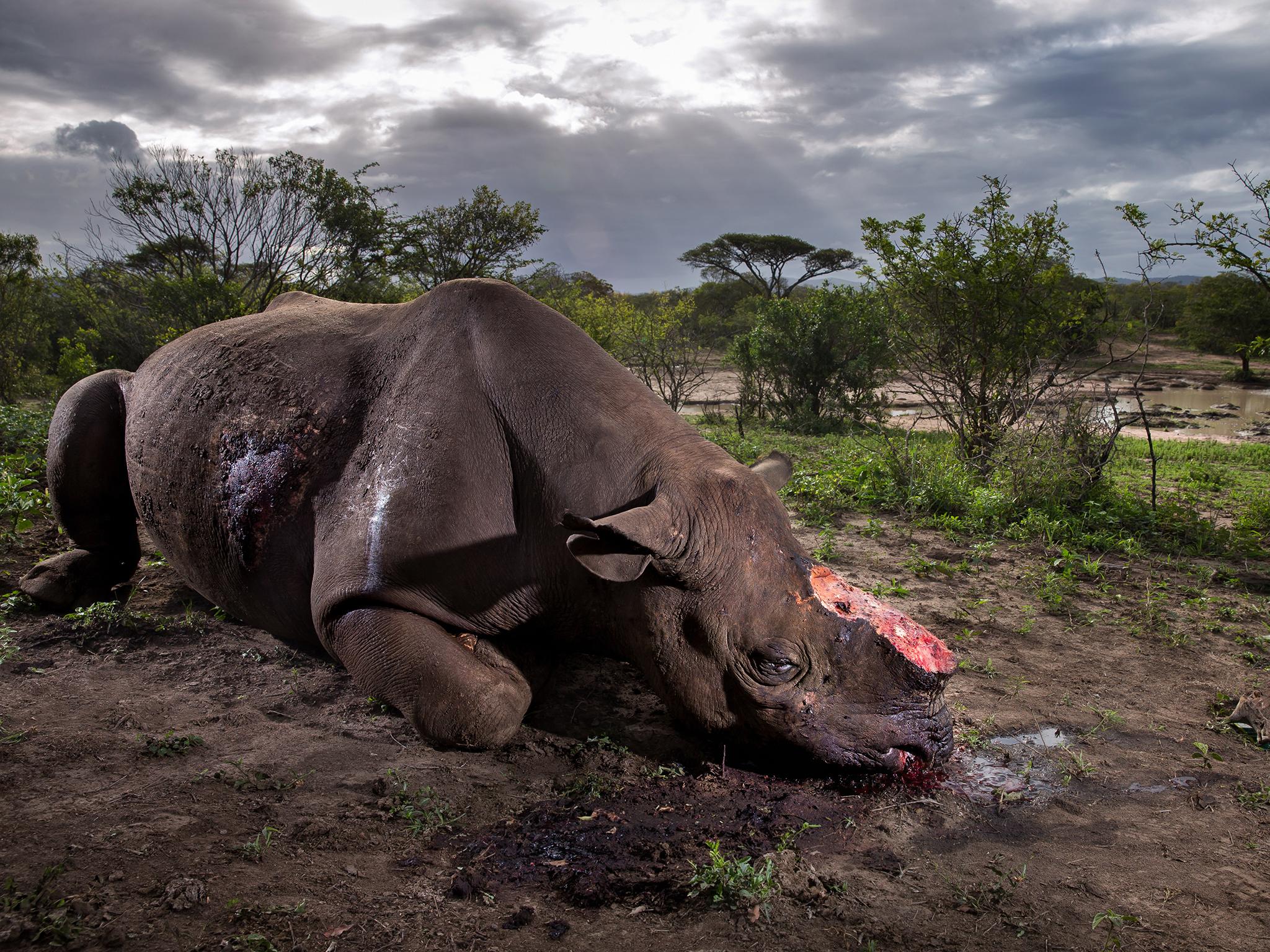Illegal wildlife trade is one of the biggest threats to endangered species – and the UK is a key player
This multibillion-pound industry increasingly involves organised crime groups, who see wildlife as a low-risk route to profit

Your support helps us to tell the story
From reproductive rights to climate change to Big Tech, The Independent is on the ground when the story is developing. Whether it's investigating the financials of Elon Musk's pro-Trump PAC or producing our latest documentary, 'The A Word', which shines a light on the American women fighting for reproductive rights, we know how important it is to parse out the facts from the messaging.
At such a critical moment in US history, we need reporters on the ground. Your donation allows us to keep sending journalists to speak to both sides of the story.
The Independent is trusted by Americans across the entire political spectrum. And unlike many other quality news outlets, we choose not to lock Americans out of our reporting and analysis with paywalls. We believe quality journalism should be available to everyone, paid for by those who can afford it.
Your support makes all the difference.You might not have heard of a pangolin, but they are widely claimed to be the most illegally trafficked mammal in the world.
With their armoured shells and long noses, pangolins are often called “scaly anteaters” because of their preferred diet. Much like the UK’s native hedgehog, when in danger, pangolins can roll into a ball – exposing only the tough scales for protection

Earlier this year, Thai customs officials seized 136 live pangolins and 450kg of pangolin scales smuggled into the country from Malaysia. These scales, which were likely destined to be used in traditional Asian medicines, are worth around $75,000 (£56,000).
Second to habitat loss, illegal trade of wildlife is considered the biggest threat to many endangered species. Although it is controlled by laws created by member countries of the Convention on International Trade in Endangered Species (Cites), illegal trade continues. And many species are now being pushed ever closer to extinction to satisfy huge demand for such things as medicines, collectables, pets and clothing.
Not our problem?
Earlier this year, the Natural History Museum announced Brent Stirton as its Wildlife Photographer of 2017 for his image Memorial to a Species, an evocative and distressing image of a slaughtered black rhino bull, horn hacked off by poachers, which was taken in Hluhluwe-Imfolozi Park, South Africa.
But illegal wildlife trade isn’t just something that happens where the animals live – the UK is both an important transit and destination country for this type of trade. Between 2009 and 2014, the UK Border Force dealt with 257 confiscations, seizing nearly 3,000 items; including ivory, rhino horn and tiger products.

The UK Government has made a clear commitment to support efforts to tackle the illegal wildlife trade. But although there are a few examples of excellent practice and of more recent initiatives – such as better collaborative work between governments, targeted crackdowns, and awareness campaigns – enforcement remains marginalised and under resourced.
Relying on enforcement is also problematic as crimes involving wildlife are generally not seen as “serious”, or are not thought of as “real crimes”. And in this way, offenders are rarely identified and prosecuted. Sentencing in the UK, and elsewhere, is also often far too lenient – and my own research has supported this.
Slap on the wrist
The research I carried out on behalf of the World Wide Fund for Nature (WWF) used analysis of previous sentences, interviews of prosecutors and an experts’ workshop. I found that sentencing in England and Wales for the illegal wildlife trade is lenient and somewhat inconsistent. The most common sentence was a fine – usually £2,500 or less.
Where information on the value of an animal or product was available, this was often much less than the “market value” of the illegal items involved. My research also showed that when imprisonment was used, sentences tended to be significantly shorter than the maximum available.

These types of crimes, as well as impacting individual animals, affect entire species and biodiversity. They can also lead to the introduction of invasive species and diseases, as well as causing legal and sustainable trade to suffer. It is also believed that some illegal wildlife trade is linked to organised crime. Clearly, when these types of cases do go to court, the impact of the crime should not just be assessed from “market value”.
Tougher sentences
Overall, in England and Wales, it seems clear that current sentencing is generally not aligned with the devastating impact these types of crimes can have. And as my research suggests, this is often because this type of crime is not viewed as seriously as it ought to be.
The UK courts are also often unfamiliar with these types of cases, which is why the WWF is pushing for the introduction of sentencing guidelines for such offences. This is important because guidelines are produced with the aim of increasing consistency and appropriateness of sentencing, through setting out how harm caused and offender culpability should be assessed, as well as highlighting relevant aggravating and mitigating factors.
The Scottish Sentencing Council has announced it will introduce guidelines for wildlife offences. But the body responsible for producing these for courts in England and Wales believes that international wildlife trade should be dealt with on a case-by-case basis – because there are so few. But this is exactly the reason why guidelines are needed.
Sentencing guidelines in England and Wales would result in more appropriate punishments for these terrible crimes. And this is more likely to deter potential offenders. Creating sentencing guidelines would also be a clear message to the rest of the world that the UK is doing its bit to address the devastating impact of the illegal wildlife trade.
Melanie Flynn is a senior lecturer in criminology at the University of Huddersfield. This article first appeared on The Conversation (theconversation.com)
Join our commenting forum
Join thought-provoking conversations, follow other Independent readers and see their replies
Comments